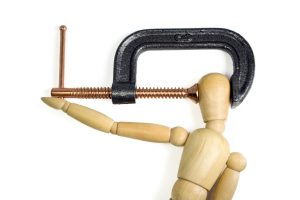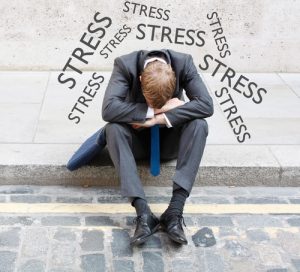Stress is a health issue that is overlooked. Many individuals worry about diet, lack of exercise, hereditary illness and contagious disease but never consider stress. Stress is a silent killer that can take a healthy person with healthy life styles and over time kill him or her.
Stress is one of the biggest killers of people in the modern world. It can suddenly cause death or gradually cause illness in the body. This is true in any living creature and not understanding the nature of stress on the body and taking appropriate stress management strategies can lead to an early grave.

The body reacts to stressors in life. Each person reacts to different stressors uniquely. What may be stressful for one person is not for another. When the body’s stress reaction takes place, various systems within the body prepare the body for the fight or flight experiences.
Walter Cannon, a physiologist, was the first to coin fight or flight. Early man responded to stressors or threats by either fighting the threat or fleeing from it. The body produces various hormones after the brain interprets the threat. The hypothalamus and pituitary gland send messages for the adrenal cortex to produce glucocorticoids and mineralocorticoids. These in turn produce cortisol and aldosterone.
Cortisol is the primary hormone that fuels the fight or flight reaction. This is an extremely important process for survival, especially for early man. Increased levels of sugar to burn, allow the body to deal with the stressor.
Aldosterone prepares the body for action. It increases blood pressure, hence permitting the body to transport food and oxygen to other parts of the body. In addition, the adrenal medulla, secretes adrenalin to give the body more energy and strength in any stress or crisis response. Combined, these hormonal changes in the body give it the energy, strength and ability to respond to stressful conditions.
Due to this, the temporary reactions raise blood pressure and increases heart rate. Various other parts of the body also react, including the autonomic nervous system, the gastrointestinal system, the muscular system and even the skin. While temporarily this is needed to respond to stress, over a long duration, these conditions can cause heart attacks, strokes, stomach ulcers and other forms of illness.
Due to modern man’s less primal living situation, one cannot resort to fight or flight responses but must instead internalize issues. One cannot flee a job assignment, yell at a boss, not take an exam, or scream at a customer. Instead, one is forced to deal with the stress and endure the physical reactions within the body.
This over time becomes deadly. Whether the degree or duration, stress kills because of the changes it forces upon the body when proper outlets are not permitted. Long work hours, deadlines, toxic relationships at work and home, poor diet, smoking, and type A personalities more prone to anxiety, anger and impatience all deal with an abundance of stress. This excess stress without proper outlets and management leads to early death.
It is imperative to limit the body’s reaction to stress with stress management techniques which teach one to cope. Stress is part of life but it can be managed. Stress can be environmental or from within and how we react, but how we handle the stressors and learn to navigate them can reduce the wear and tear on our mind and body.
Hans Sele, the Father of Modern Stress Management, conducted a variety of experiments on rats, inducing different rats with different levels of stress and stressful situations. He noted that the rats with the most stress over time developed various conditions to their bodies. These conditions affected almost all bodily systems, from heart issues to ulcers and anything in between. He became aware that stress over time kills.
He pointed out three phases all animals face. First, the alarm reaction. During this phase, the body reacts to stress and exposes the reactionary characteristics of the body to the stressor. Within this phase, the body reacts to stress and if the stress is to strong, the person dies.
The second phase is the reactionary phase in which the body endures and adapts to the stressor. Alarm appearance had diminished and the resistance to the stressor rises.
The final phase according to Seyle, is the stage of exhaustion, where the body’s adaptation energy becomes exhausted, and the alarm phase appearances return, but this time, become permanent and the body dies due to duration of the stress.
Hence Seyle pointed out that if the body does not adapt or remove the stress irritant, one can either die from stress immediately or over duration. This led to the idea that stress kills according to degree or duration. This is why it is important during the second stage, to overcome the issue and move on or if the issue is not life threatening, to learn important coping strategies to deal with the stress itself.
This is difficult with hard and long work hours, definitive deadlines and toxic interpersonal relationships. Divorce, loss, death, unemployment, illness, and other issues can pile upon an already stressful life style and compound the body’s ability to overcome the stressor. Duration sets in and the body’s stress responses in themselves become deadly.

One can take some control though in how the body responds to stress. Meditation, bio-feedback, hypnosis, channeled breathing, prayer, positive outlooks, humor, exercise, diet, and life evaluations can all play key roles in limiting stress. Ultimately it is up to you if you wish to limit the damage stress can do on your body.
Stress Management coping strategies are key to a healthy life. Certified Stress Management Consultants can help others learn how to better cope and deal with stress. Stress Management is becoming more mainstream in a variety of areas beyond just personal health but is also becoming a big service offered in business, politics, emergency response, policing, and other industries that see a high level of stress.

If you would like to learn more about Stress Management or would like to become a certified Stress Management Consultant, then please review AIHCP’s Stress Management Consulting Program and see if it matches your academic and professional goals. The program is online and independent study and leads to a four-year certification. In the meantime, limit your stress and live a healthier life.
















